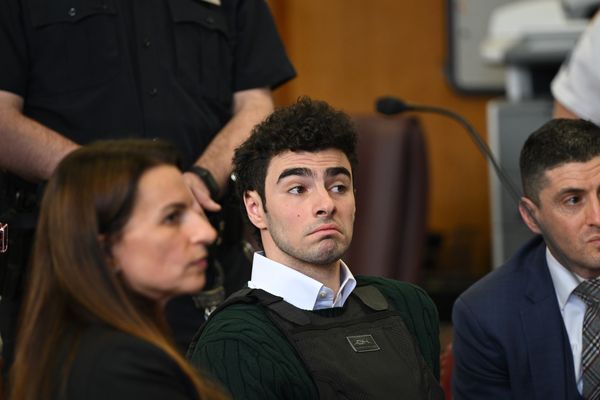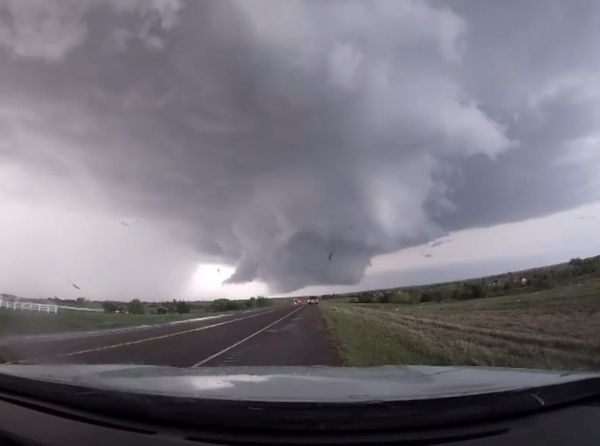It’s not the job of any one TV show or film to persuade politicians to care about the people they serve.
That didn’t stop a viewer from reaching out to “Abbott Elementary” creator and star Quinta Brunson asking that she write a school shooting episode for her ABC sitcom: “Formulate an angle that would get our government to understand why laws need to pass.”
This request, Brunson noted on Twitter, was just one of many, and the absurdity was not lost on her: “(It’s) wild how many people have asked for a school shooting episode of the show I write. People are that deeply removed from demanding more from the politicians they’ve elected and are instead demanding ‘entertainment.’”
Hollywood will not save us.
It’s galling to put this responsibility on the shoulders of one of the few Black women to have her own show, while the rest of Hollywood is presumably free to carry on as usual. It’s also unreasonable to expect Brunson and her colleagues — who make a comedy — to “fix” things by devising a fictional scenario that compels elected officials to act when actual real-world tragedies, including the shooting deaths of 19 schoolchildren and two teachers in Uvalde, Texas, this week, do not.
But the pop culture we consume does shape our ideas about the world around us.
If you’re looking to compel TV writers to do more, perhaps we should look to the executive producers behind the many, many, many cop shows that proliferate. How does the fantasy they churn out affect our perceptions of real-life law enforcement? And does the fantasy end up functioning as a misdirect that allows police to sell one idea, while the reality is as something altogether different?
This isn’t a minor corner of the TV landscape. Dick Wolf saw all nine of his shows renewed for next season across NBC and CBS. Seven of those series center on characters who work in law enforcement. Their portrayals are almost universally heroic; their point of view humanized. They are extraordinarily committed to taking down bad guys. That’s their job. It’s why they show up in the morning. The subtext to all these stories: Law enforcement is there to protect us.
Reality differs in some important ways. In 2005, the Supreme Court ruled that police officers do not have a constitutional duty to protect people from harm. How many viewers are conscious of this disconnect when watching TV?
The school shooting in Uvalde is an unsettling example of how this can play out. Though much of what happened is still being sorted out, one allegation from parents is that police failed to act quickly enough to stop a lone gunman before he killed 21 people. That’s at odds with how fictional crises unfold on cop shows. Real life is so much more devastating and disappointing.
“Copaganda” — a term used to describe the pro-law enforcement bent of most crime shows — isn’t build to embrace tougher, non-laudatory questions like: How are these systems failing us? How are these systems specifically harming Black people, Latinx people and other marginalized communities? What would police abolition look like if many of the roles many officers are asked to fill — traffic stops, disputes between neighbors, shoplifting — were handled by new and different agencies that weren’t affiliated with law enforcement?
I’ve written about this in the past, first in 2020 after the murder of George Floyd and again in 2021. Maybe it feels impossible to picture what police abolition might even look like. Fictional stories are one way to help us imagine that — and sort through all the hypothetical complications and unintended consequences.
For now, overwhelmingly, portrayals of law enforcement on TV paint an idealistic picture. Of dedicated people willing to put their lives on the line. There’s a lot of money to be made peddling that fantasy. According to Forbes, Wolf’s fee is as much as $200,000 per episode, on top of an unusually lucrative deal that entitles him to half his shows’ profits. It’s easy to single him out, but every above the line employee working on his shows and others — the writers, the actors, the producers — are profiting handsomely. That’s because so many people watch “Chicago P.D.” and “Law & Order: SVU” and “FBI” and more, which serve as de facto advertising for a system that never works the way Hollywood pretends it does.
Should Hollywood executives take a principled stand and dial back on the number of cop shows on the air? That would be a start. But to be blunt, they’re focused on drawing viewers and making money. If show business happens to be a force for societal good, well, that’s just a bonus.
If you really think Hollywood should step into the breach, ask Dick Wolf to write episodes that “would get our government to understand why laws need to pass” and leave Quinta Brunson out of it.
Because “Abbott Elementary” is already doing something that I think is vital and subversive: Every episode is the story of people (some who don’t even like one another) coming together against adversity. Communal action is a consistent throughline: You can’t do this alone. You have to rely on the people around you. And they have to be able to rely on you, in turn. Teamwork on television is not just the purview of those with badges.
Brunson and her colleagues have found a way to depict regular people thinking through problems and banding together with such warmth and bracing humor. It’s the opposite of a fantasy. And that’s more than enough.
———







